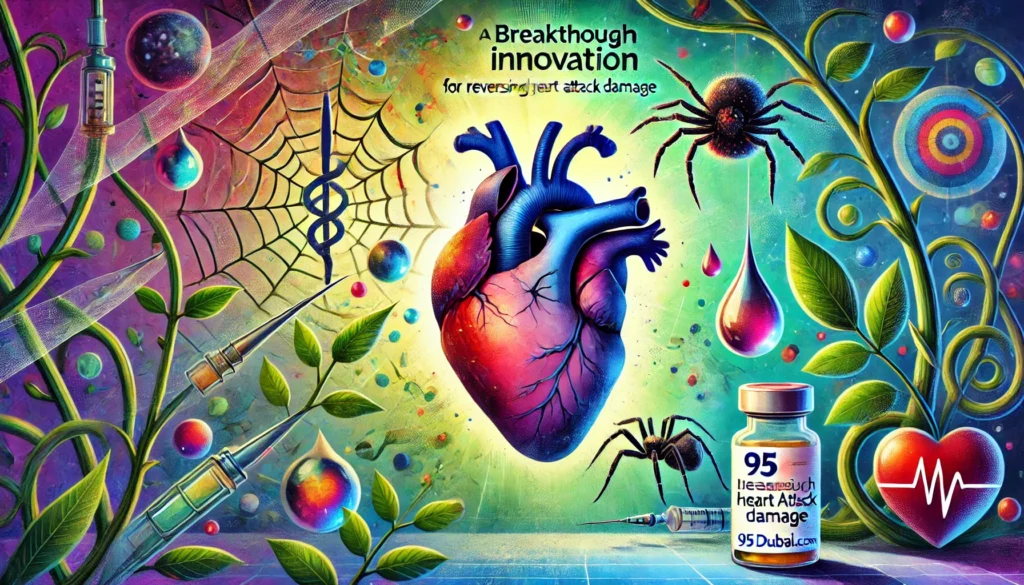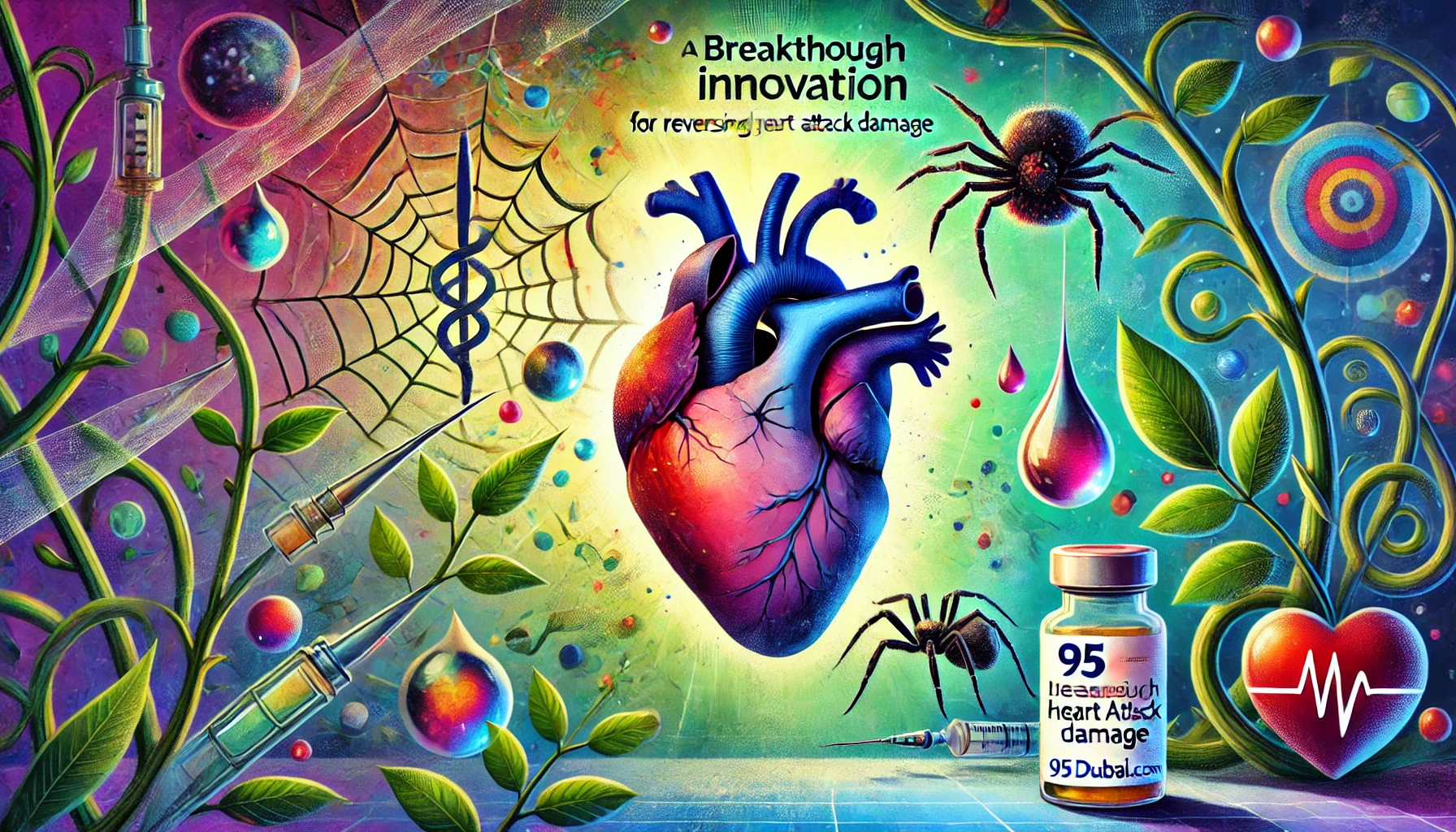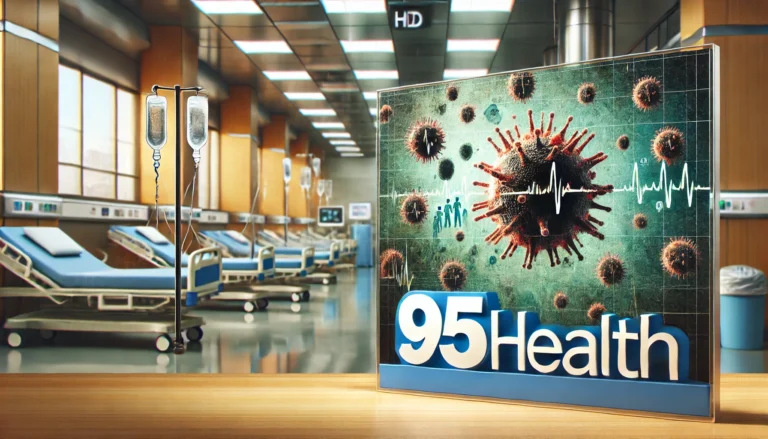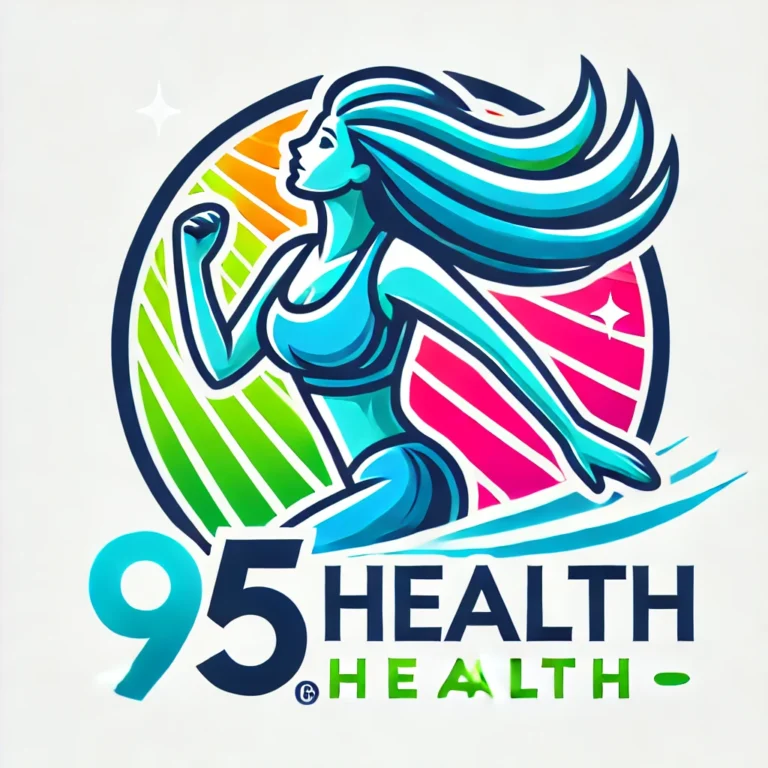Drug Inspired by Spider Venom Aims to Reverse Heart Attack Damage
Heart attacks are one of leading causes of death internationally. It affects millions of people every year. An attack can leave horrendous damage behind that has the ability to really impact someone’s quality of life. Rehabilitation becomes a real challenge. And now a great development in medicine is changing the story.
A drug inspired by spider venom is unveiled by researchers. It could repair heart muscle damage following a heart attack. And it could revolutionize cardiac care and hold out hope for millions of survivors. Here, we examine how this drug works, the science behind it, and what it may usher in for heart health.
Cardiovascular disease is the number one cause of death in the world, according to the World Health Organization (WHO). On average, over 17.9 million people die annually as a result of them. This is a large part of heart attacks. A heart attack happens when blood supply to a part of the heart is cut off. It leads to damage or death of heart muscle tissue. A few hours in a steamy hospital bed can save lives, but the damage they leave behind can cripple hearts, cause chronic health problems and lead to heart failure.

The standard treatment for heart attacks has been to limit initial damage. Mostly out of reach has been reversing or repairing the aftermath. The scientists have been searching for a solution to heal the damaged heart tissue. A promising alternative today is a drug based on spider venom.
Read more: Potential Risks of Erythritol: What Recent Studies Reveal About This Popular Sweetener
The Solution: How Spider Venom Became a Solution
The drug is based on a peptide that is found in the venom of the Fraser Island funnel web spider (Australia). Studies reveal that Hi1a, a peptide contained in venom, demonstrates wonderful properties. In heart cells, Hi1a is shown to block certain ion channels. It prevents the heart attack cascade of damage that takes place afterward. The peptide can stabilize heart cells and protect, or even aid in recovery of, damaged heart tissue.
This venom derived peptide, when administered shortly after a heart attack, reduced cell death by 40 percent in animal studies. In other words, the peptide could prevent heart damage, resulting in better treatment for patients. The discovery is a ‘game changer’ in treating heart attacks, says Professor Peter Macdonald, a leading cardiologist. It holds out real hope of reversing heart muscle damage.
Read more: Rare Case of Probiotic Supplement Leading to Fatal Infection
The Venom That Led To The Creation Of The Drug
A heart attack occurs when the heart muscle is deprived of oxygen. This is known as ischemia. This is vital because its oxygenated blood, called reperfusion, must reintroduce the heart tissue. It also sets your body (pain messaging) off but then the inflammation response it triggers can also do further damage. The venom-derived peptide blocks ASIC1a acid sensing ion channels (ASIC1a), which become active during reperfusion.
Targeting ASIC1a channels, the peptide helps to attenuate damage that occurs with reperfusion. University of Queensland studies had shown that rodents treated with the peptide had improved heart function. They also had less damaged tissue spread around. If similar results are found in human trials, the drug could become a standard treatment for heart attack victims, the research team believes. This would be a groundbreaking approach to not only surviving but to improving long term heart health.
| Heart Muscle Damage Recovery: | 50% | |
| Hi1a Peptide Dosage (mg): | 5 mg | |
| Heart Function Improvement: |
Read more: Toothbrushes and Showerheads: The Unexpected Breeding Grounds for Unknown Viruses
This venom-inspired drug has buoyed medical community cautiously positive despite confidence that it is important to achieve more than just keeping patients alive, Dr. Nathan Palpant, a researcher at the University of Queensland, said. This [is to] improve their quality of life following a heart attack. Dr. Palpant says, ‘Reducing damage and the heart muscle’s ability to recover could affect the way we care for the cardiac patient.’
But it’s not yet widely available because more research is needed. In order to truly show safety and effectiveness, human trials are yet to be seen. Heart muscle damage may be reversible by a drug that could revolutionize how patients recover. For millions of survivors it could reduce the burden on healthcare systems and potentially improve quality of life.
Read more: Are People More Honest When They’re Drunk? Exploring the Science Behind Alcohol and Truth-Telling
The venom derived drug has the potential to bring many benefits for patients and healthcare provider if successful in human trials. They could prevent heart attack damage to prevent heart failure and chronic problems of the cardiovascular system. Patients more likely to return to normal activities who develop fewer heart muscle symptoms.
If this were the case the need for extensive rehabilitation and ongoing medical care would be reduced. With heart failure these costs are very heavy. A treatment which falls within these cost limits carries the potential to save healthcare systems money, especially in countries where rates of cardiovascular disease are high.
Read more: Understanding the Marburg Virus: A Growing Global Health Concern
Actionable Takeaways for A Reader
Advancements like the spider venom drug, however, are still no reason to stop promoting heart health. Steps to reduce a risk of a heart attack include maintaining a healthy diet, exercising regularly and smoking. Patients and caregivers should also always stay updated about new treatments. Outcomes are strongly dependent upon early intervention. It can help to support research into new treatments so that these solutions can get to the public faster. Contribute or support the organizations of cardiovascular research.
An exciting step forward in cardiac care is the development of a drug inspired by spider venom. This could have the potential to change tens, if not hundreds of millions of lives, because this is a promise to reverse rather than simply to manage heart damage. This discovery reminds us that to allow money lost to medical research. It reveals the amazing capacity of nature to present practical solutions to some of our biggest health issues.
Hope for those affected by heart disease or concerned about heart health. Heart attack treatment might soon be more effective, very focused on recovery, than ever before.
| 1. Is the drug inspired by spider venom aimed at reversing heart attack damage? | |
| 2. How would you rate your knowledge about medical advances in cardiovascular health? | |
| 3. Which of the following components are mentioned in the drug research? (Select all that apply) |
Protein Toxins Enzymes |
| 4. Is it true that the drug will have no side effects according to the article? |
True False |
| 5. In which phase of the clinical trial is the drug currently? | |
| 6. Do you think spider venom components have potential therapeutic benefits? (Toggle Yes/No) | Yes |
| 7. What is the primary goal of the drug as stated in the article? | |
| 8. Rate your agreement: “Spider venom-based drugs could be the future of cardiology.” |
Read more: The Complex Relationship Between Aspirin and Heart Disease
References
- Palmer, K. Drug inspired by spider venom aims to reverse heart attack damage. Live Science. October 2024.
- World Health Organization. Cardiovascular diseases (CVDs) fact sheet. 2023.
- Macdonald, P., & University of Queensland. Venom-derived peptide shows potential in heart attack treatment. University of Queensland News. 2024.
- Palpant, N. New cardiac care strategies: Moving beyond survival. University of Queensland Research. 2024.




